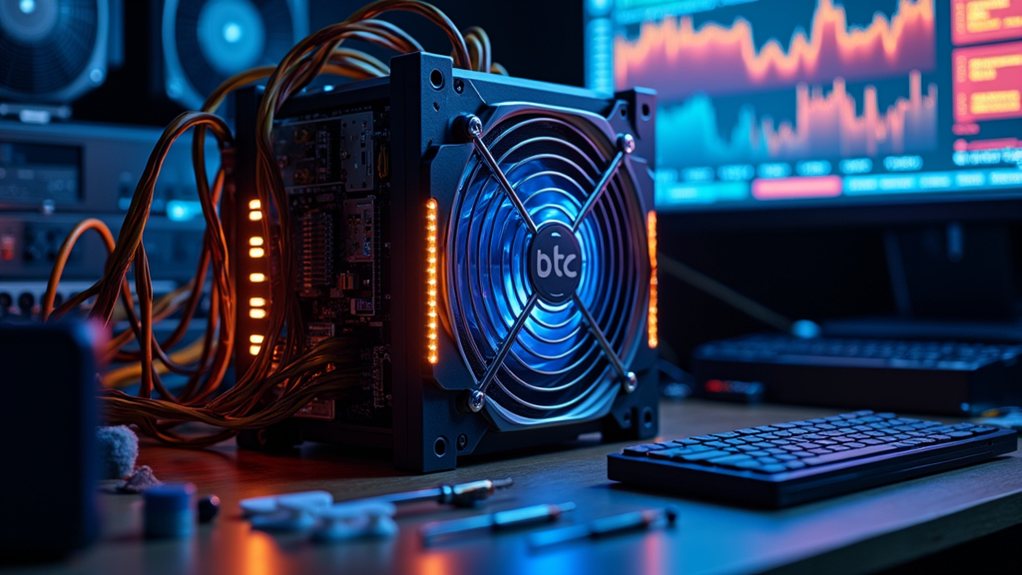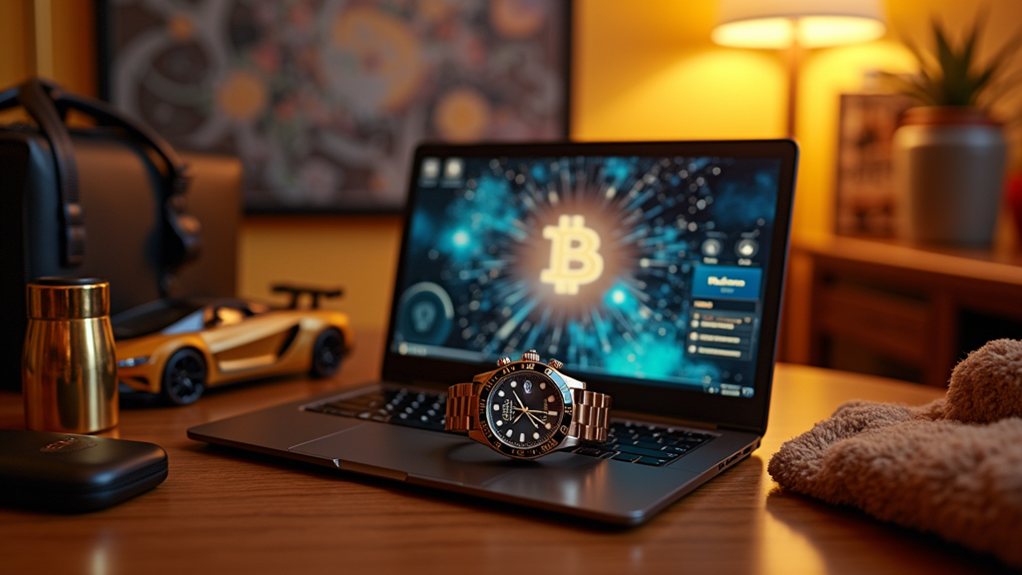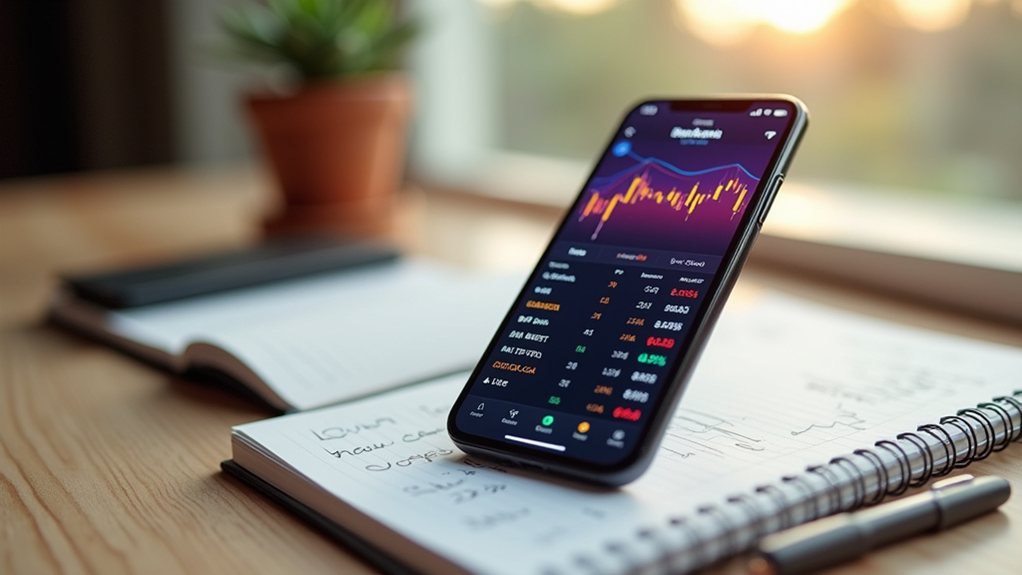Decentralized wallets put crypto control directly in users' hands. No middlemen, no permission needed. Just pure blockchain interaction. They come in various forms—software, hardware, even paper—each with unique security features like encryption and biometric authentication. Benefits include full asset ownership, enhanced privacy, and DeFi access. But there's a catch: lose your keys, lose your coins. No customer service hotline here. The crypto-verse rewards those who master their own financial sovereignty.

Why do cryptocurrency enthusiasts keep harping on about "not your keys, not your coins"? It's not just a catchy slogan. It's reality. When cryptocurrencies sit in centralized exchanges, users aren't truly in control. Enter decentralized wallets: self-custodial solutions that put users back in the driver's seat. They operate without middlemen, connecting directly to blockchain networks and enabling peer-to-peer transactions without asking for permission.
Decentralized wallets come in several flavors. Software versions live on mobile devices, desktops, or as browser extensions. Hardware wallets, those little USB-looking devices, store keys offline for enhanced security. The truly paranoid might opt for paper wallets—literally printing private keys on physical paper. The core technology behind all these wallet types is the secure management of blockchain access keys that represent ownership of digital assets. Brain wallets rely on memorized seed phrases (good luck with that), while multi-sig options require multiple approvals for added security. Different strokes for different folks.
The core appeal? Non-custodial key management. Users interact directly with blockchains, often supporting multiple cryptocurrencies simultaneously. Many integrate with dApps, opening doors to the weird and wonderful world of decentralized finance. Privacy gets a boost too—no KYC forms or identity verification hoops to jump through.
Security doesn't happen by accident. Decentralized wallets encrypt private keys, provide seed phrase backups, and increasingly offer biometric authentication. These solutions deliver enhanced security and privacy through features like private key management, significantly reducing vulnerability to hacking attempts. Some support two-factor authentication. Cold storage options keep assets tucked away from internet-connected devices. Implementing End-to-End Encryption ensures data confidentiality during transactions, protecting user information from interception. Not bulletproof, but better than trusting a random exchange with your financial future.
The advantages are clear. Full asset control. No exposure to exchange hacks. Enhanced privacy. Access to DeFi protocols. Independence from third parties who might freeze accounts or impose restrictions. Freedom has its appeal.
But freedom comes with responsibility. Users must manage their own keys—lose them, lose everything. No customer service department to reset passwords here. User error during transactions can send coins into the void forever. Phishing attacks target wallet users constantly. And let's be honest, the technical complexity intimidates many newcomers. Not everyone wants to be their own bank.
Choosing the right wallet means balancing security features, cryptocurrency support, and usability. Consider device compatibility, check the wallet's track record, and read community feedback. Some wallets excel at simplicity; others at thorough security. Some support obscure altcoins; others stick to mainstream cryptocurrencies.
The decentralized wallet landscape continues evolving. New security features emerge as hackers discover new vulnerabilities. The interfaces become more intuitive as developers recognize the importance of user experience. The crypto space is maturing. Slowly. Sometimes painfully. But the core premise remains: decentralized wallets empower users to truly own their digital assets.
Frequently Asked Questions
How to Recover a Wallet if I Lose My Seed Phrase?
Losing a seed phrase is crypto's ultimate nightmare.
Recovery options? Limited.
Brutal truth: most wallets offer no backdoor. Users might check for alternative backups or contact wallet providers, but chances are slim.
Professional recovery services exist, but no guarantees.
Cold hard fact: without that seed, funds often remain permanently locked. The crypto world doesn't forgive carelessness.
Some centralized exchanges offer account recovery, but decentralized wallets? Rarely so forgiving.
Can Law Enforcement Track Transactions in Decentralized Wallets?
Law enforcement can absolutely track decentralized wallet transactions.
Blockchain's public nature means every move is recorded forever. While addresses are pseudonymous, forensic tools can follow money trails, cluster related wallets, and identify patterns.
Privacy coins and mixers complicate things, sure. But with subpoenas to exchanges, IP tracking, and increasingly sophisticated analysis methods? The cops aren't exactly flying blind.
Privacy isn't guaranteed, folks.
Are Hardware Wallets Safer Than Software Wallets?
Hardware wallets outperform software wallets in security, hands down. They store private keys offline in tamper-resistant chips, making remote hacking nearly impossible.
Software wallets? Connected to the internet and vulnerable to malware, keyloggers, and phishing. Pretty obvious choice for anyone serious about security.
Hardware wallets require physical confirmation for transactions and use PIN protection. Still, they're not magic. Supply chain risks exist, and losing that seed phrase? Game over.
How Do Wallet Transaction Fees Compare Across Different Blockchains?
Wallet fees vary dramatically across blockchains. Bitcoin averages around $1, but spikes during congestion.
Ethereum? Much pricier — simple transfers run $1-$5, while complex smart contract interactions can hit $50+. Yikes.
Alternatives offer relief: Solana with sub-cent fees, Cardano at $0.20, BSC under $0.50.
Polygon and Lightning Network are practically free.
Network traffic and transaction complexity determine what you'll pay. No wonder people chain-hop to save money.
What Happens to My Crypto if the Wallet Developer Shuts Down?
If a wallet developer shuts down, funds remain safe on the blockchain.
Private keys are what matter, not the wallet interface. Users can still access their crypto with backup seed phrases through alternative compatible wallets.
No updates though. Security risks increase over time. Some integrations might break.
Smart crypto owners diversify across multiple wallets anyway. The wallet's just a window to the blockchain, not a bank vault.








